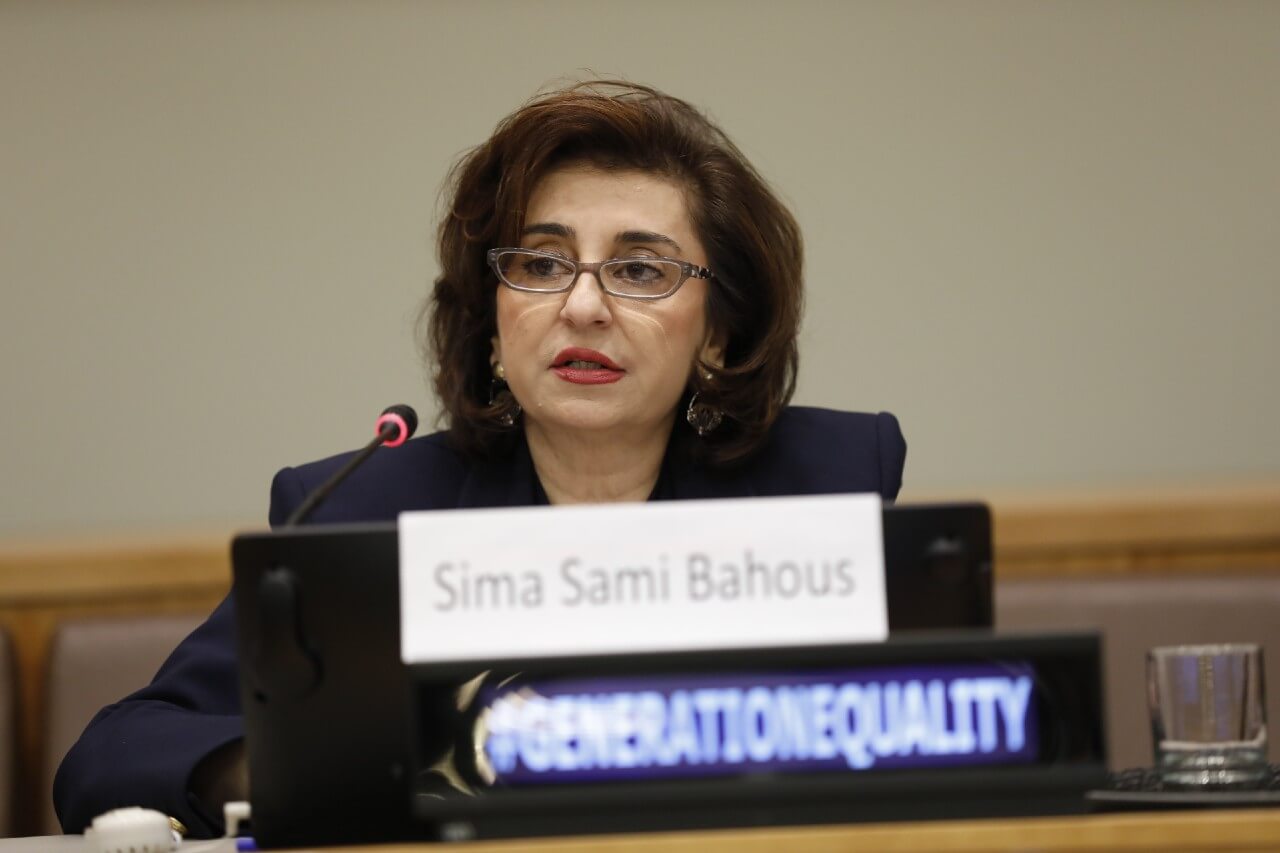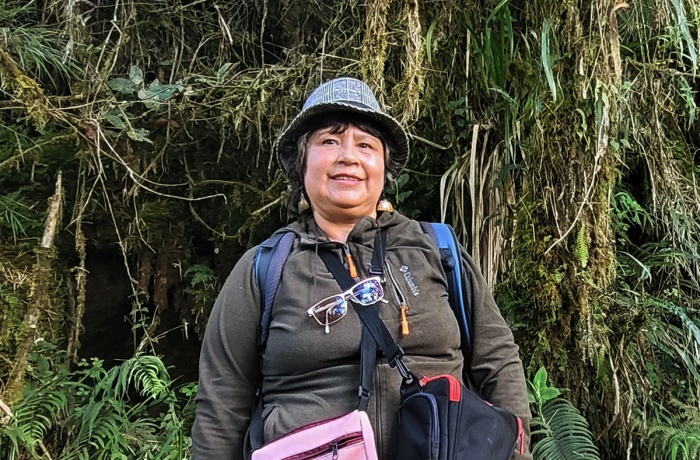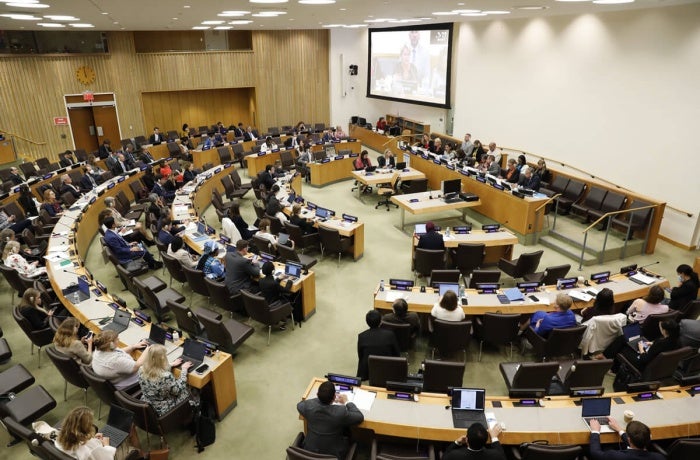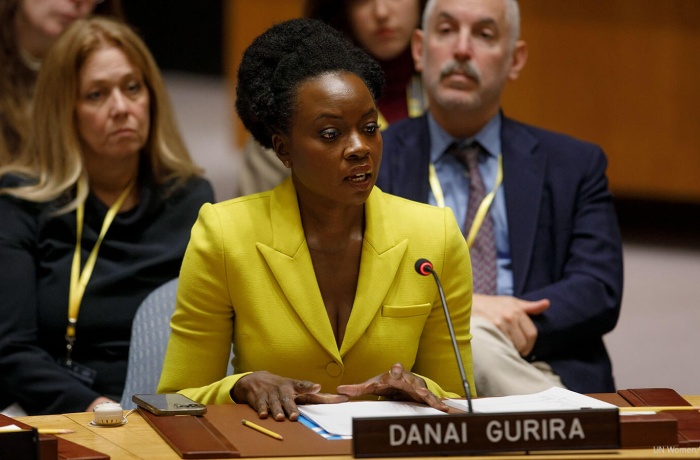Speech: Ambitiously proactive – Generation Equality brings hope to stalled progress and financing
Opening remarks by UN Under-Secretary-General and UN Women Executive Director Sima Bahous to the Generation Equality side event at the 68th session of the Commission on the Status of Women, UN headquarters, 14 March 2024.
[As delivered.]
It is an honour to welcome you to UN Women’s Generation Equality side event on the margins of the 68th session of the Commission on the Status of Women to discuss feminist financing and accountability for women’s economic justice and eradicating women’s poverty.
Despite some progress, we remain far from achieving gender equality, especially when it comes to women’s economic empowerment. Globally, one out of ten women and girls lives in poverty. If current trends continue, more than 340 million women and girls will still live in extreme poverty by 2030. These inequalities are entrenched in systems and institutions that perpetuate unequal access to decent jobs and sectors like science and technology. They restrict women’s land ownership and capital and perpetuate norms that create barriers for women.

And yet, we know women continue to contribute enormously to the economy, directly and indirectly. One out of three businesses are owned by women. Women provide the bulk of unpaid care work, spending 2.8 hours more a day than men do.
If we are not ambitiously proactive, women’s economic empowerment and autonomy will be continuously stalled.
To be ambitiously proactive, governments must prioritize gender-responsive financing and gender equality. ODA [official development assistance] to support women’s rights organizations and movements, already far below what is needed, recently fell by almost a third.
As data from our 2023 Gender Snapshot report has shown, an additional USD 360 billion per year is needed to achieve gender equality across key Sustainable Development Goals, including ending poverty, as is being discussed here at CSW68. My colleagues tell me that the additional USD 360 billion that are needed per year to achieve gender equality across key Sustainable Development Goals is just as much as the world spends on coffee per year, so I think we can spare that money to push for gender equality. It is also a fraction of what the world spends on weapons every year, so also, I think it is a call from here for our agenda on women, peace, and security. We can use this money for women and girls instead of putting it into wars that women rarely or never start.
Generation Equality brings hope to this reality of stalled progress and financing. It brings hope to get the Sustainable Development Goals back on track by unlocking political will and accelerating investment through its six Action Coalitions and the Compact on Women Peace and Security and Humanitarian Action.
We have demonstrated and documented that the multi-stakeholder model adopted by Generation Equality is working: it is driving resources to gender equality and facilitating new opportunities for collaboration, partnerships, sharing of experiences, and good practices.
Commitment makers have collectively reported USD 47 billion in financial commitments, and have supported the implementation of 850 policies, more than 2,300 programmes, and more than 3,600 advocacy initiatives. This concretely and positively impacts the lives of millions of women and girls, while building and forging new and innovative partnerships for gender equality.
But I am sure you all agree with me that we must do more. To get back on track towards achieving gender equality and the Sustainable Development Goals, we need the mobilization of stable and long-term financing, at scale, and to hold stakeholders to account to deliver.
The upcoming Summit of the Future in September provides an opportunity to once again model multi-stakeholder engagement. As the Pact of the Future is being finalized, I urge all of you to contribute to it, in whatever form you can. I urge you to be bold in your ambitions because gender equality can no longer wait.
Today, I am proud to launch UN Women’s newest accountability report focusing on the Economic Justice and Rights Action Coalition. The report showcases data and concrete examples on how, through collective action and bold commitments, the Action Coalition is transforming the care economy, ensuring decent work, securing women’s access to and control of productive resources, and promoting gender-responsive economies.
The report shows that commitments to economic justice and rights make up close to 70 per cent of financial pledges to Generation Equality. The commitments challenge power dynamics and foster feminist leadership for achieving women’s economic autonomy.
The report shares good examples that range from Germany’s implementation of a 2021 Act that mandates that enterprises respect human rights in their supply chains, to grassroots efforts in Cameroon to build the capacities of women entrepreneurs through the use of digital technologies. What these commitments demonstrate is that we have the collective power to achieve gender equality and to advance the rights of all women and girls, everywhere.
I end by calling on you to join us in Generation Equality to promote, as we are discussing here at CSW, feminist funding and financing for gender equality. I am confident that, together, we can make it happen. So, let’s push forward together.
I wish you all a successful session here today; I wish us all a successful CSW68, and I thank you.








